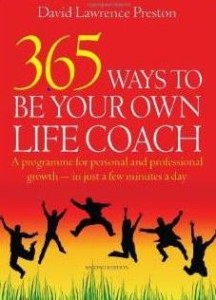‘There is only one way to happiness and that is to cease worrying about things which are beyond the power of our will.’
Epictetus
Think of some problem or event from your past that was so big at the time that you literally worried yourself sick about it. Can you remember the outcome?
Worry is the opposite of faith. It’s a feeling of agitation brought about by mulling over what you don’t want. It is the misuse of your imagination. Research shows that 90% of what we worry about never happens, and the other 10% happens so rarely it’s not worth worrying about.
Worry causes more psychological problems than almost any other emotion. It’s like leaving your car in the garage all night with the engine running. You waste petrol, pollute the atmosphere and wear out the engine – but get nowhere.
Worrying about a problem never solved it. The best antidote is action. If you can do something about it – do it. If there’s nothing you can do, why worry – it won’t make any difference.
Try these:
- Start a worry box. Whenever you find yourself worrying about something, write it on a piece of paper and put it in the box. Then turn your attention elsewhere. (In reality, of course, you are allowing your intuitive unconscious mind to sort it out for you.) On the last day of each month, open the box. You will find that most of your worries never came to anything, or were not as bad as you imagined, or you were able to cope one way or another.
- Ask yourself what exactly you’re getting worked up about. Be honest, how likely is it to happen? Sometimes we worry about things that only have a tiny chance of occurring.
- Is it really that important? If the worst happened, could you handle it? Tell yourself you can. Once you know you can handle the worst, it eases your worries considerably.
- Activity distracts you from worry. Often whatever is worrying you resolves itself while your attention is on other things.
- Live one day at a time. Concentrate on what you can do now. Do the best you can each day and the future will take care of itself.
- Deep relaxation and meditation have enormous benefits. When your body is relaxed, the part of the mind which does the worrying is more relaxed too, so develop a calm disposition and ‘visualise’ yourself dealing with whatever life throws at you.
Back to my first question – did all that worrying make any difference? Probably not!
©David Lawrence Preston, 26.3.2016
Follow me on Facebook and Twitter @feelinggoodatt
How to Books, 2004

